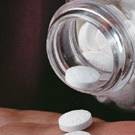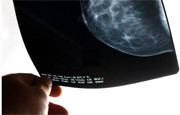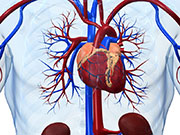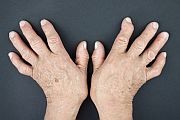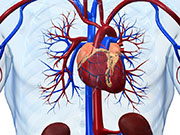Obesity Raises Prostate Cancer Risk Even Higher for Black Men
Researchers urge physicians to take note of findings
Salt Pills Fail to Substantially Benefit Endurance Athletes
Finding challenges common belief that salt pills can boost performance
Gene Variation May Impact Smoking Cessation Efforts
Researcher suggests a change in screening policies
AACR: Regular Aspirin Use Linked to Lower GI Cancer Risk
Greatest benefit from aspirin required taking it for at least 16 years
AACR: Pembrolizumab Shows Promise in Advanced Lung Cancer
Keytruda (pembrolizumab) is already approved to treat melanoma
Guidance Offered for Managing Conflict With Patients
Good communication is crucial for managing encounters when denying a patient request
AACR: Changes Expected in Breast Cancer Rates
Overall, breast cancer could rise by as much as 50 percent within the next 15 years
Age, Creatinine, Ejection Fraction Predict Post-MI Survival
ACEF score is not significantly different from that based on 12 risk factors; predicts mortality after PCI
Hydroxychloroquine May Reduce Hyperlipidemia Risk in Early RA
Reduced risk of hyperlipidemia with hydroxychloroquine versus other DMARDs
Hydration During PCI Cuts Risk of Contrast-Induced Nephropathy
CIN significantly associated with mortality and need for dialysis; hydration is predictor of CIN










